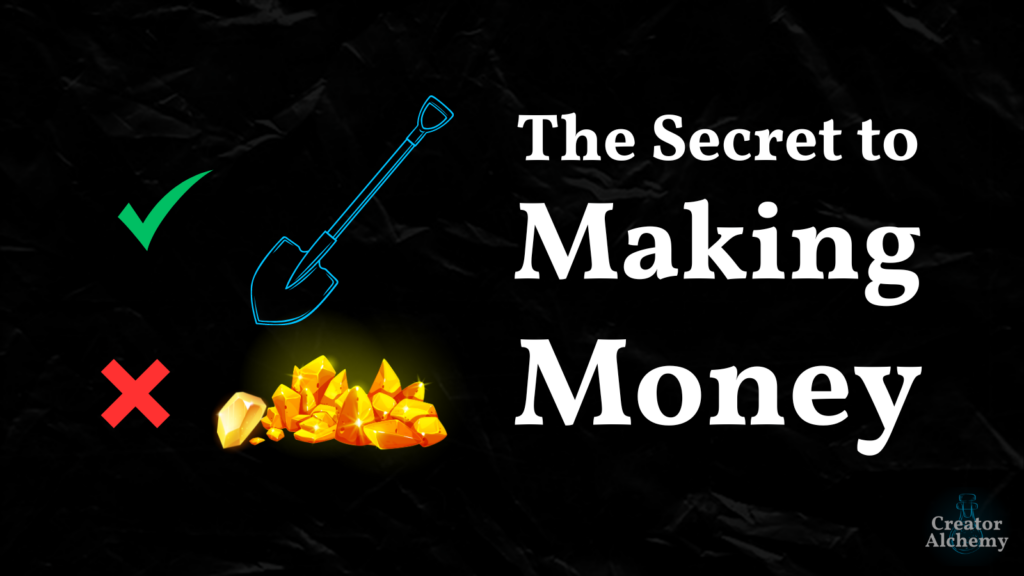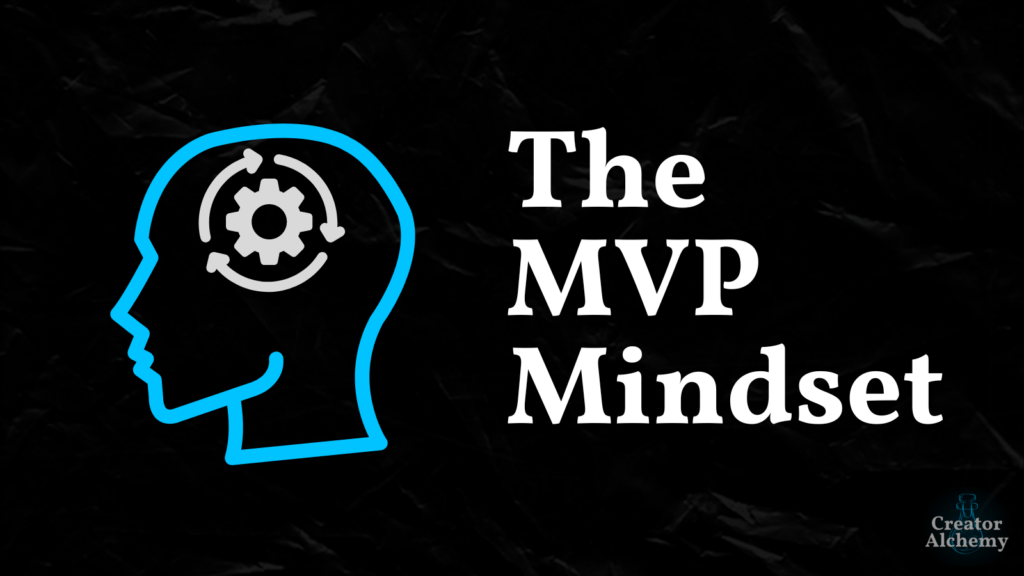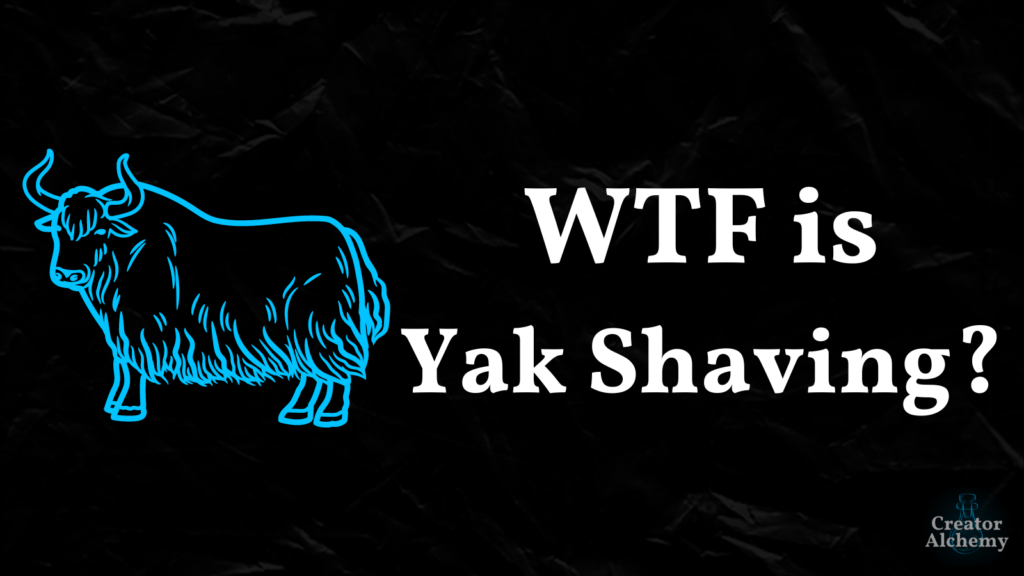Think of every course or digital product you’ve taken to level up as a creator.
Why did you buy it?
Sure, the information was probably good. And if it was live, you probably met some cool people and benefited from some built-in accountability.
But these are benefits you got after you bought it.
I’m asking why you bought it in the first place.
I recently signed up for Thinking in Stories by Lawrence Yeo. There are dozens of writing courses claiming to help you level up your writing (I’ve taken several of them, and some actually deliver).
But of all the courses out there, what drew me to this one?
The simple answer? Moats.
A friend asked me why I bought Lawrence’s course and, without realizing it, I explained each of the three moats he’d built.
The same three moats every successful creator builds first.
These moats are also why I’ve bought every course or product over the past few years, not just Lawrence’s, but I’ll use the DM exchange with my friend as a running example.
Read on to find out what these moats are and how you can build them, too…
•••
Affinity
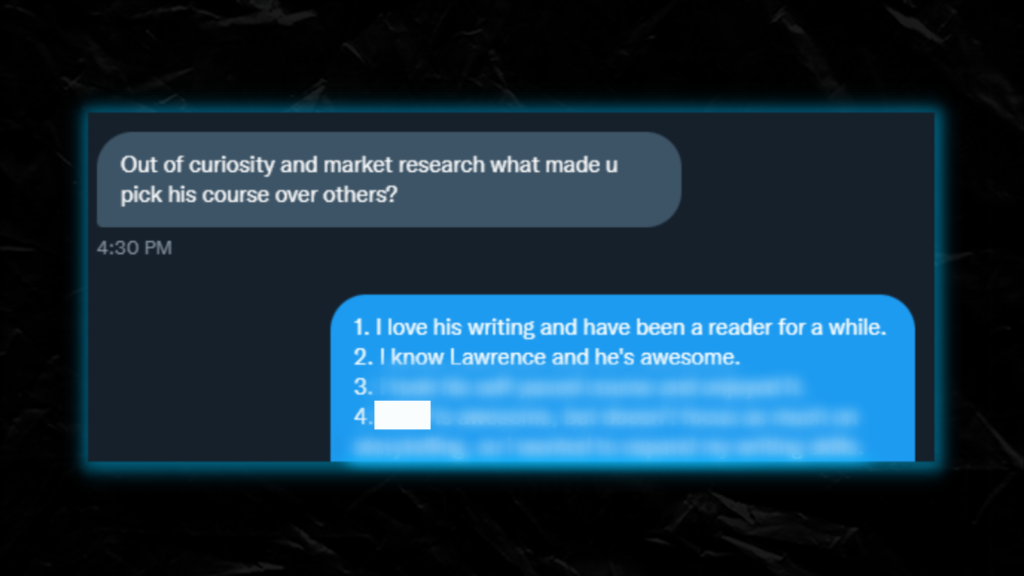
The first moat is affinity, aka, how much does your content resonate with people and how strong of a connection do they feel to you?
Here’s a harsh truth about creating content: Someone else has already said everything you want to say.
Truly new content is exceedingly rare. Think of your favorite book. The overall plot is probably the same as thousands of other books:
- The underdog overcomes seemingly insurmountable odds to win at the last minute.
- The rebel cell takes down the corrupt government.
- True love conquers all.
See? I just described 99% of books and movies.
But the reason your favorite story is your favorite is because of the characters. You see yourself in them. You connect with their struggles or worldview. They feel like a long-lost friend.
Which makes you feel an affinity toward them.
Affinity is a moat because even if the essence of your content is the same as a thousand other creators—your story, quirks, and worldview set you and your content apart from everyone else’s.
People don’t follow you because of your content. They follow you because of your character.
And they buy for the same reason.
Affinity is one of the best creator moats you can build because it takes you out of the comparison game and turns you into a category of one.
•••
Reputation
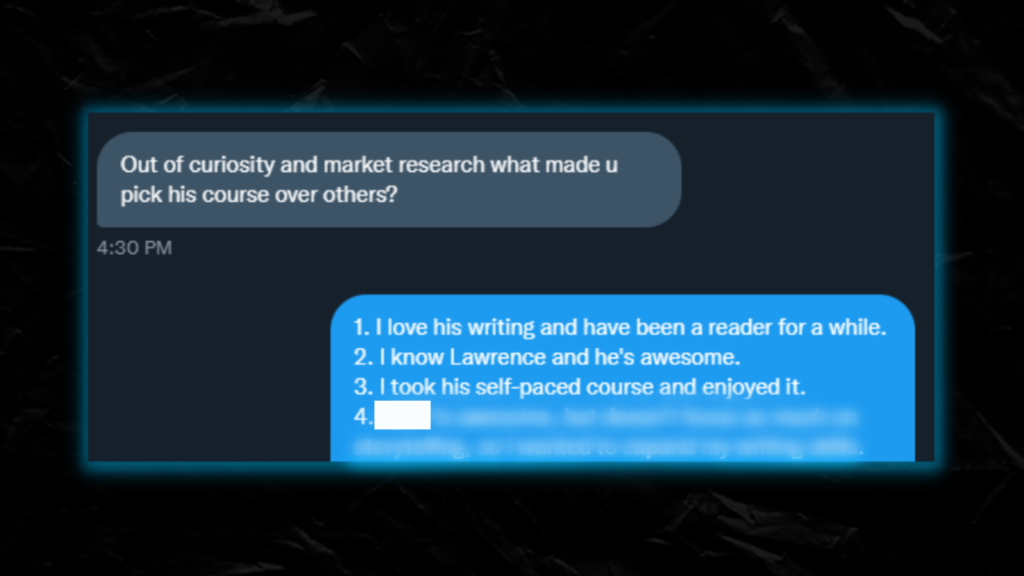
In psychology, we have a saying: Past behavior predicts future behavior.
In this context, it means if you’ve done good work before and provided tons of value, people assume this new thing you’re putting out is also solid.
You can’t hack your reputation.
Yeah, you can hire a ghostwriter to create some bomb-ass posts or something, or pay for retweets, but this isn’t the same as building a reputation.
Reputation is the compounding of word-of-mouth over time.
Reputation takes forever to build and no time to lose.
Reputation is hard-fucking-won.
Every tweet. Every article. Every DM. Every product. Every podcast interview. Adds—or subtracts—from your reputation.
I’ve built up some pretty solid social capital with people. But I guarantee you if I started shilling some bullshit crypto scam, put out a horrible course that was an obvious money grab, or started spouting weird uber-right-wing conspiracy nonsense, I’d not only lose every ounce of that capital I’ve built up over the last few years—I’d have to work 100x harder to earn back a fraction of that trust.
Other than going broke and giving up, a ruined reputation is the main reason creators don’t make it. And 9 times out of ten, they ruin their own reputation.
One simple strategy to keep your reputation is to make sure every piece of content you put out passes what Jay Clouse calls the “Regret Test.”
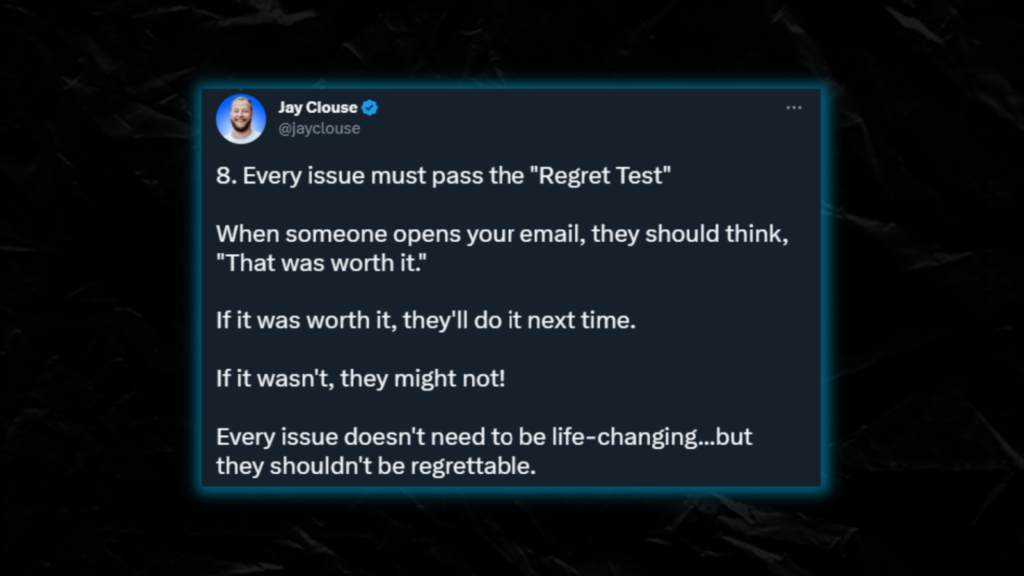
Reputation and regret are inversely correlated.
You increase your reputation by reducing your audience’s regret, and you decrease your reputation every time your audience regrets interacting with your content.
Create accordingly.
•••
Positioning
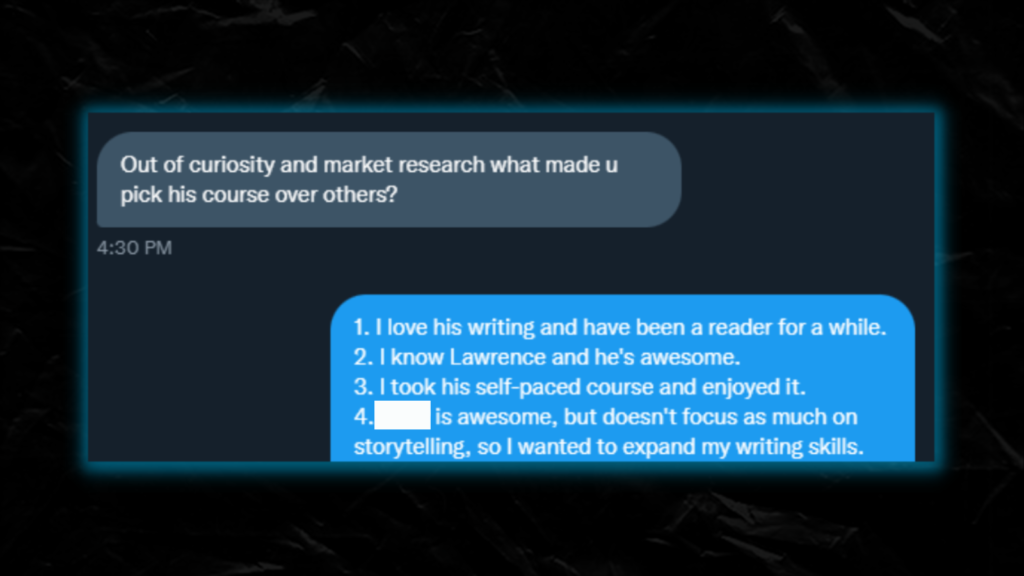
One of the things I teach in World-Class Coaching when it comes to doing sales calls is: People don’t care about the 100 things you can do. They care about the 1 thing you can do for them.
Lawrence could easily teach a more comprehensive writing course, but this course is specifically on storytelling. I’m comfortable with my writing abilities overall. I’ve been writing online for over two years between free and paid newsletters, my own website, and Psychology Today. And I’ve taken incredible writing courses on broader topics (like Write of Passage). But I specifically want to become a better storyteller since I’m writing a book this year.
Positioning comes down to being two things: different and specific.
Different from what everyone else is doing, and specific to what your ideal audience is looking for.
If you’ve built affinity, you’ve probably already nailed the “different” part of this equation, so all that’s left is to get specific on what you offer.
If you try to be everything to everyone, you end up being nothing to no one.
What strategic advantages, unique insights, deep philosophies, lived experiences, or contrarian takes can you leverage to position your thing apart from what everyone else is doing?
•••
Wrap Up
You could learn all the hacks and develop complex systems to crank out content and courses.
But without creator moats like affinity, reputation, and positioning, you’ll always be a replaceable commodity racing to the bottom.
If you want to separate yourself from the crowd and build an audience of people who truly love what you do, double down on building these moats.
Can you think of anything you’ve bought, read, watched, or listened to lately that wasn’t influenced by at least one of these moats?
Because I can’t.
Lawrence built them, as has every other successful creator.
So can you.

